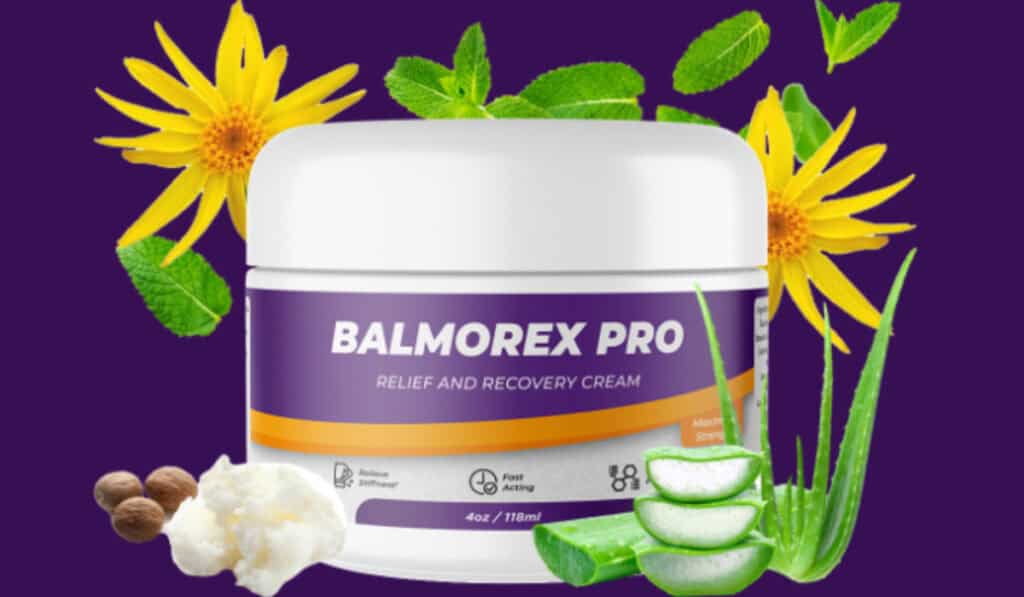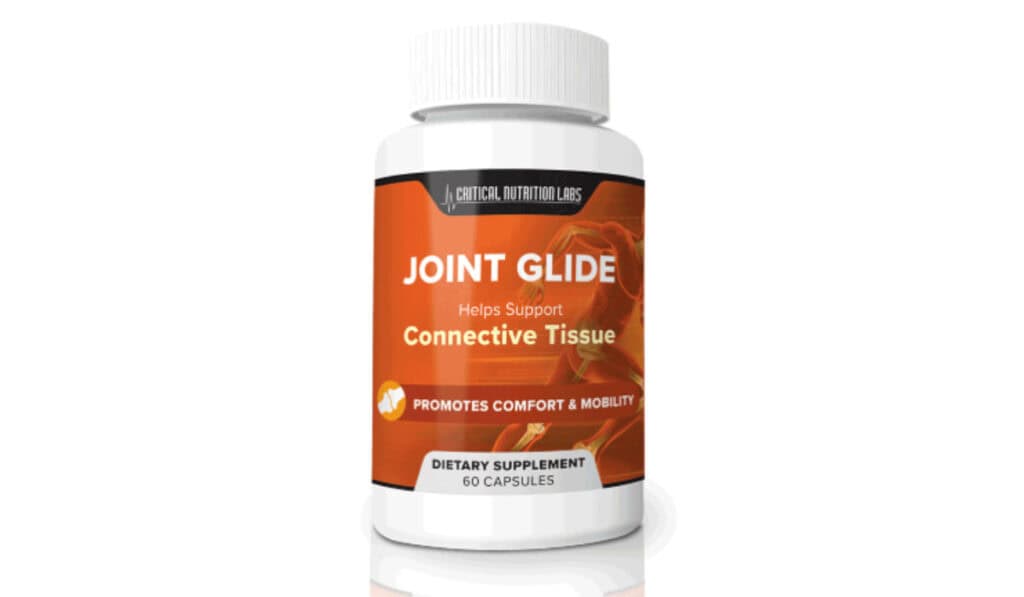What Works and Why
Finding relief from joint pain can sometimes feel like a never-ending quest. But nature offers a variety of supplements that can help soothe your discomfort. In this guide, we’ll explore how these natural remedies work to reduce pain and inflammation, helping you understand why they might be a good addition to your wellness routine.
From the anti-inflammatory properties of turmeric to the joint health benefits of omega-3 fatty acids, we’ll dive into the science behind each supplement. By understanding what works and why, you can make informed decisions about managing your joint pain naturally.
Essential Supplements for Easing Joint Pain
Discovering the right supplements can transform your approach to managing joint pain. Key ingredients like turmeric, omega-3 fatty acids, and glucosamine have been shown to offer significant pain relief and improve joint health.
1. Turmeric: Nature’s Anti-Inflammatory
Turmeric, a plant from the ginger family, is celebrated in South Asian cuisine and medicine for its anti-inflammatory properties. To maximize its benefits for joint health, it should be absorbed with fatty oils like avocado or olive oil. However, individuals on blood thinners should proceed with caution due to potential interactions.
Try It: Incorporating Turmeric into Your Diet
While turmeric holds promise for joint pain relief, research is needed to fully understand its effects. Start by adding turmeric to your meals or taking supplements with a healthy fat source to enhance absorption. Remember, a balanced approach is key.
2. Omega-3 Fatty Acids: The Power of Fish Oil
Omega-3 fatty acids, found abundantly in fish oil, are crucial for reducing swelling and tenderness in arthritis patients. They support the nervous system and can decrease joint stiffness. Encouraging your body’s natural healing processes, omega-3s are a powerhouse for combating inflammation.
Try It: Selecting Quality Omega-3 Supplements
When seeking omega-3 supplements, research is needed to find products with high purity and sustainability. Look for certifications that ensure quality, and consider your dietary preferences, such as plant-based sources, to support your joint health journey.
3. Glucosamine and Chondroitin: Building Blocks for Healthy Joints
Glucosamine and chondroitin are among the most popular supplements for relieving knee pain. Acting as natural pain relievers, they help rebuild cartilage and restore joint mobility over time. For those seeking a non-pharmaceutical approach, these supplements offer a hopeful option.
Try It: Combining Glucosamine and Chondroitin for Optimal Relief
Combining glucosamine and chondroitin supplements can potentially enhance their effectiveness in providing pain relief. It’s important to follow recommended dosages and consult with a healthcare provider to ensure they fit into your overall pain management plan.
4. SAMe (S-Adenosyl Methionine): Mood and Cartilage Support
SAMe, a compound naturally produced in the body, offers dual benefits for mood enhancement and cartilage support. Its role in pain management and joint health makes it a valuable supplement for those dealing with joint discomfort.
Try It: Dosage and Selection Tips
Finding the right dosage of SAMe is crucial for its effectiveness in joint pain relief and mood support. Start with lower doses and gradually increase as needed, always under the guidance of a healthcare professional to ensure safety and efficacy.
5. Boswellia: Indian Frankincense for Joint Swelling and Pain
Boswellia, also known as Indian Frankincense, has been used for centuries to reduce joint swelling and pain. Its natural anti-inflammatory properties make it a sought-after supplement for those looking to ease their joint discomfort without relying on pharmaceuticals.
Try It: Finding the Right Boswellia Supplement
When choosing a Boswellia supplement, look for products with high levels of active ingredients to ensure you’re getting the most effective relief. Reading labels and understanding the concentration of Boswellia extract can help you make an informed choice.
Additional Natural Remedies and Supplements
Beyond the key supplements discussed, incorporating a variety of vitamins and minerals into your diet can further support joint health and pain relief. A holistic approach combining these nutrients can lead to better overall wellness.
6. Avocado-Soybean Unsaponifiables: A Plant-Based Approach
Avocado-Soybean Unsaponifiables (ASU) offer a plant-based method for improving joint health and reducing discomfort. By promoting cartilage repair and reducing inflammation, ASU supplements provide a natural alternative for those seeking relief from joint pain.
Try It: Understanding ASU Supplements
Exploring the benefits of ASU supplements requires understanding their source and potential effects on joint health. Start with recommended dosages and consider combining ASU with other natural supplements for a comprehensive approach to managing your joint pain.
7. Devil’s Claw: Herbal Relief for Pain and Inflammation
Devil’s Claw, a natural herb, has gained attention for its potent anti-inflammatory properties, making it a popular choice among those suffering from pain and inflammation. Particularly beneficial for individuals dealing with osteoarthritis and rheumatoid arthritis, Devil’s Claw works similarly to an anti-inflammatory drug but without the harsh side effects. Its effectiveness in reducing pain and swelling in joints makes it a valuable addition to your treatment plan, offering a natural alternative to synthetic medications.
Try It: Integrating Devil’s Claw into Your Routine
Starting with Devil’s Claw can be as simple as incorporating it into your daily supplement regimen. Look for standardized extracts to ensure consistent dosing and aim for a product that provides around 600 to 800 mg daily, split into two or three doses. It’s important to give it some time to work, as natural remedies often take longer to show their full effects. Always consult with your healthcare provider before starting any new supplement, especially if you’re already on medication for arthritis or other conditions.
8. Cherry Juice Extract and Collagen: Lesser-Known Supplements with Potential Benefits
Cherry juice extract and collagen are emerging as promising supplements for joint health, thanks to their unique properties. Cherry juice, rich in antioxidants and anti-inflammatory compounds, can help reduce inflammation and muscle soreness. Collagen, the main protein found in joints, supports the repair and maintenance of cartilage, potentially slowing the progression of joint damage. Together, these supplements offer a complementary approach to managing joint health, with cherry juice targeting inflammation and collagen supporting structural integrity.
Try It: Daily Dosages and Effective Use
For cherry juice extract, consider starting with a daily dosage of around 8-12 ounces of tart cherry juice or 400 mg of cherry juice concentrate. When it comes to collagen, a daily intake of 10-15 grams can be beneficial for joint health. These supplements can be easily incorporated into your daily routine, with cherry juice serving as a refreshing drink and collagen available in both powder and capsule forms. Consistency is key, so make these supplements part of your regular dietary regimen to maximize their joint health benefits.
Ensuring Safety and Efficacy in Supplement Use
When exploring supplements for joint pain, prioritizing safety and efficacy is crucial. Not all supplements are created equal, and the market is rife with products that promise much but deliver little. Researching and choosing supplements that have been clinically tested and proven to be effective can help ensure that you’re not only investing in products that work but also safeguarding your health. It’s also wise to consult healthcare professionals to tailor supplements to your specific needs and conditions, ensuring that they complement, rather than complicate, your health regimen.
Choosing Quality Supplements: What You Need to Know
Selecting high-quality supplements is key to managing arthritis symptoms effectively. Look for products that contain the right balance of vitamins and minerals essential for joint health. Ensuring that these supplements have undergone rigorous testing for purity and potency can make a significant difference in their effectiveness and safety. It’s not just about what’s in them, but also about how they’re made and whether they meet the highest standards of quality.
Certification, Dosages, and Avoiding Adulteration
To ensure you’re getting the best quality supplements, check for certifications from independent third-party organizations. These certifications can provide assurance that the product meets specific standards for quality and safety. Pay close attention to the recommended dosages to avoid under or overdosing, which can affect the product’s effectiveness or lead to adverse effects. Finally, be vigilant about the risk of adulteration – choosing reputable brands and sources can help minimize the risk of consuming contaminated or counterfeit products.
Beyond Supplements: Lifestyle Tips for Managing Joint Pain
While supplements can play a crucial role in managing joint pain, they’re just one piece of the puzzle. Incorporating lifestyle changes, such as regular exercise and a balanced diet, can significantly enhance the pain-relieving effects of supplements like glucosamine and chondroitin. Exercise, in particular, is beneficial for managing knee osteoarthritis, helping to strengthen the muscles around the joints, improve flexibility, and reduce overall pain. When combined with a well-rounded treatment plan that includes medically reviewed supplements for arthritis, these lifestyle adjustments can make a substantial difference in your quality of life.
‘Motion is Lotion’: The Role of Exercise in Joint Health
Adopting a regular exercise routine is pivotal for anyone dealing with joint pain. Not only does movement help to lubricate the joints, reducing stiffness and pain, but it also strengthens the muscles that support those joints, providing additional stability and flexibility. Start with low-impact activities such as walking, swimming, or yoga, and gradually increase the intensity as your comfort and ability improve. Remember, consistency is key, so find activities you enjoy to ensure you stay active and keep your joints in the best possible condition.
Nutritional Support: Diet Changes That Can Help
Alongside exercise, a diet rich in anti-inflammatory foods can play a vital role in managing joint pain. Incorporate fruits, vegetables, whole grains, and lean proteins into your diet, focusing on foods known for their anti-inflammatory properties, such as fatty fish, nuts, and seeds. Avoiding processed foods, sugars, and saturated fats can also help reduce inflammation and support overall joint health. By making these dietary changes, you can complement the effects of supplements and medications, further alleviating joint pain and improving mobility.
Embracing a Holistic Approach to Joint Pain Relief
Tackling joint pain effectively requires a multi-faceted strategy that includes supplements, dietary adjustments, and regular physical activity. By addressing the issue from multiple angles, you can maximize the pain-relieving effects, improve your mobility, and enhance your quality of life. Embracing this holistic approach ensures that you’re not only treating the symptoms but also addressing the underlying causes of joint pain, leading to more sustainable and long-lasting relief.
The Importance of a Multi-Faceted Strategy
A comprehensive approach to managing joint pain is crucial for achieving the best possible outcomes. Combining effective supplements with lifestyle changes ensures that you’re addressing all aspects of joint health, from reducing inflammation to strengthening the muscles that support your joints. This strategy not only helps in alleviating current discomfort but also in preventing future issues, paving the way for a healthier, more active life.
Combining Supplements, Diet, and Exercise for Optimal Results
For those seeking relief from joint pain, integrating supplements with dietary improvements and regular exercise is key. Start by incorporating scientifically supported supplements into your daily routine, then adjust your diet to include anti-inflammatory foods while eliminating inflammatory triggers. Complement these changes with a consistent exercise regimen that focuses on flexibility, strength, and endurance. By adopting this holistic approach, you can enhance the effectiveness of each element, leading to significant improvements in joint health and overall well-being.
The Path Forward: Taking Control of Your Joint Health
Embarking on a journey to improve your joint health can feel daunting, but with the right strategies and support, it’s entirely achievable. Begin by educating yourself on the supplements that have been shown to offer relief, such as glucosamine sulfate and chondroitin sulfate, and understand the importance of regular exercise and a balanced diet. Engage with a healthcare provider to tailor a treatment plan to your specific needs, focusing on both the physical and emotional aspects of joint pain management. With determination and a proactive approach, you can take control of your joint health and lead a more active, pain-free life.
Personal Stories of Success and The Science Behind the Supplements
Real-life success stories highlight the transformative power of combining natural supplements, like glucosamine sulfate and chondroitin sulfate, with lifestyle changes. Taking 1500 mg daily of glucosamine sulfate, along with 1200 mg of chondroitin sulfate, has been shown to significantly improve pain and function in individuals with joint inflammation. These stories, backed by science, underscore the potential of natural remedies to not only relieve joint pain but also improve emotional well-being and quality of life, offering hope and inspiration to those on their own path to joint health.
Real-Life Impact: How Natural Supplements Have Changed Lives
For individuals grappling with arthritis pain, the journey to relief can be daunting. Yet, countless stories have emerged of those who’ve turned to natural supplements and found significant improvements. These personal accounts often highlight not just a reduction in pain, but an enhanced quality of life. By integrating supplements like turmeric or omega-3 fatty acids into their routines, many report being able to move more freely, engage in activities they love, and reduce their reliance on traditional pain medications. Such stories serve as powerful testimonials to the potential of natural remedies in managing arthritis pain effectively.







